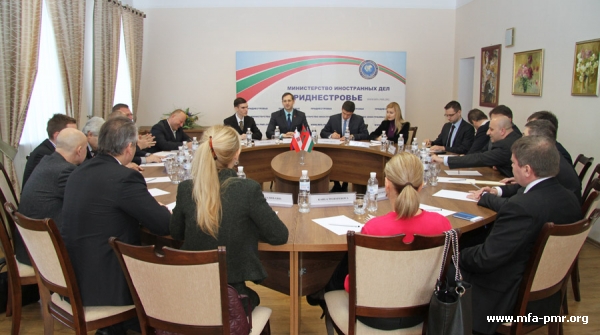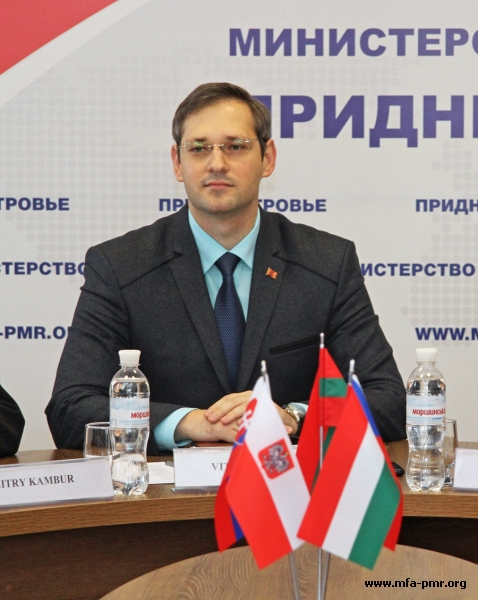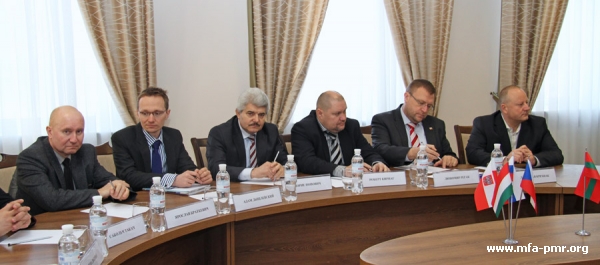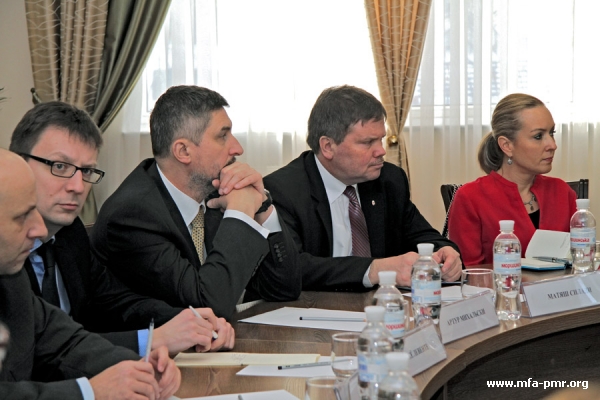Today, the Ministry of Foreign Affairs of the PMR hosted a meeting of Deputy Minister Vitaly Ignatiev and the delegation of political directors from the Visegrad Group. The delegation came to the Foreign Office after the visit to the Chamber of Trade and Commerce of Pridnestrovie.
In the course of the meeting, the parties discussed situation in the Moldovan-Pridnestrovian settlement and several issues of mutual interest.
Vitaly Ignatiev pointed out the fact of current significant risks regarding to the intention of the Republic of Moldova to sign the Association Agreement with the European Union, including forming of the Deep and Comprehensive Free Trade Area and withdrawal of the Autonomous Trade Preferences.
As the Pridnestrovian diplomat noted, Pridnestrovie was not an equal member to the negotiations, economical interests of the PMR and its position were not taken into consideration, as well as blockage measures, imposed in 2006 by the Republic of Moldova, were not removed. To this end, he underlined the interest of Pridnestrovie in order to develop particular mechanism of enterprises' operation after introduction of a new trade regime, and the willingness to discuss this issue within bilateral collaboration with the European side.
Answering the question of the Visegrad Group representatives concerning operation of Latin-script schools on the territory of Pridnestrovie, Deputy Minister informed that the Pridnestrovian side proceeds from necessity to settle current contradictions without breaking academic activity and basing on the recommendations, stipulated in the OSCE Report, implying registration and licensing procedures to be undergone by these schools.
At the end of the meeting, Vitaly Ignatiev noted good partnership between Pridnestrovie and the embassies representing the Member States of the Visegrad Group. The diplomat expressed hope that these relations would expand and acquire new content in the future.
Reference:
The Visegrad Group (V4) was established in 1991 as a union of post-socialist states seeking to integrate into European structures. It includes Poland, the Czech Republic, Slovakia and Hungary. In 2004, all member states of the Visegrad Group became members of the European Union; it gives ground for considering organization as a regional interstate formation within the EU. The organization works in the format of periodical meetings between representatives of the States Parties at different levels, as well as annual Summits of the Visegrad Group Prime Ministers.











